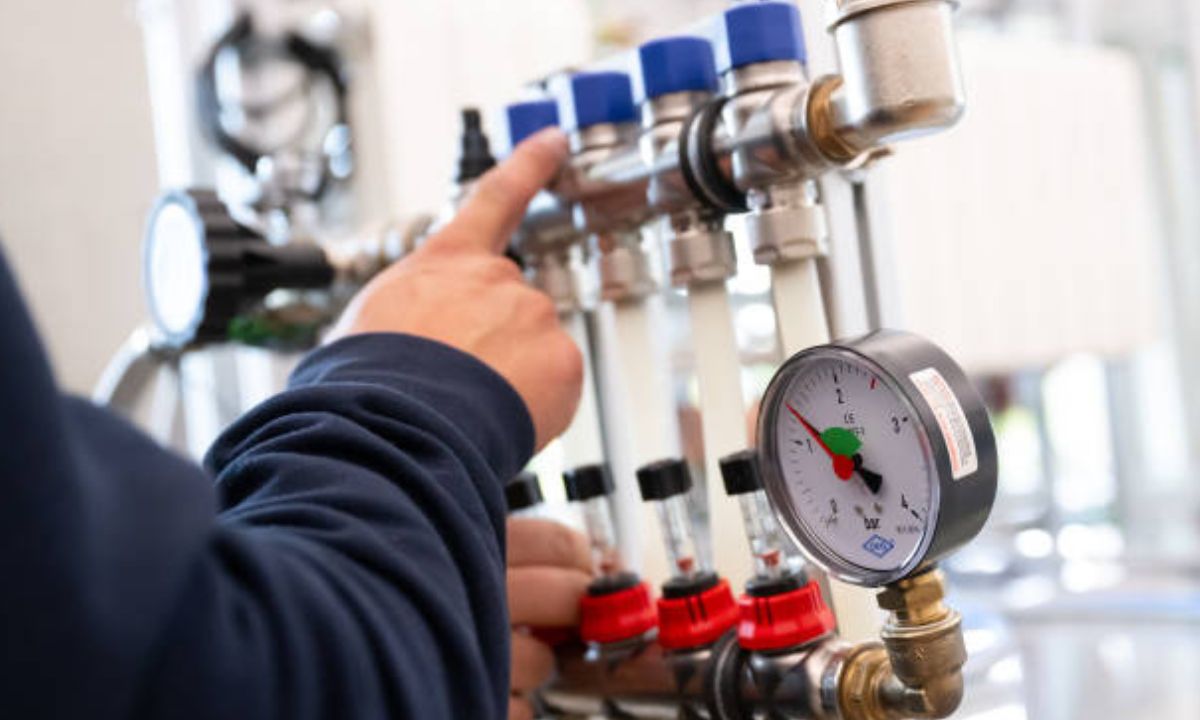Heating your home efficiently impacts not only your comfort but also your energy bills and environmental footprint. Whether you’re building a home, upgrading an outdated system, or looking to enhance efficiency, investing in the right heating system is crucial. But how do you choose the best option for your unique needs?
This guide will walk you through the different types of heating systems, key factors to consider, the importance of professional installation, and tips for selecting a trusted heating contractor. We’ll also share real-life success stories to highlight how the right heating system can elevate comfort and cost-efficiency at home.
By the end of this article, you’ll have all the tools and insights you need to make an informed decision–ensuring your home stays warm, cozy, and energy-efficient all winter long.
Types of Heating Systems
When it comes to heating your home, there are several options to explore. Each type offers unique benefits, so understanding these systems is essential before making a choice.
1. Heat Pumps
Heat pumps are an efficient option that works by transferring heat between your home and the outside environment. They are commonly used in areas with moderate climates.
Advantages:
- High energy efficiency
- Provides both heating and cooling
- Environmentally friendly with low carbon emissions
Considerations:
- Slightly higher upfront cost
- May struggle in extreme cold
2. Furnaces
Furnaces are one of the most common heating systems in homes and run on natural gas, oil, or electricity.
Advantages:
- Reliable heating
- Wide availability
- Compatible with central air conditioning units
Considerations:
- Higher energy consumption compared to modern systems
- Regular maintenance required to ensure safety
3. Radiant Heating Systems
Radiant heating delivers heat through hot water tubes or electric mats installed beneath floors, baseboards, or walls.
Advantages:
- Provides even, consistent heating
- Quiet operation
- More efficient than forced-air systems
Considerations:
- High installation cost
- Time-consuming installation process
4. Boilers
Boilers heat water and distribute it as steam or hot water through pipes to radiators or radiant-floor systems.
Advantages:
- Long lifespan
- Consistent, even heat distribution
- Can double as a water heater
Considerations:
- Slower warm-up times
- Regular servicing required for efficiency
5. Space Heaters
Ideal for smaller spaces or supplemental heating, these portable heaters are low-cost solutions for spot heating.
Advantages:
- Affordable initial cost
- Portable and convenient
Considerations:
- Less energy-efficient for whole-home heating
- Potential safety risks
Factors to Consider When Choosing a Heating System
1. Size of Your Home
The size of your home will play a significant role in selecting the right heating system. A system that’s too small will struggle to heat your space, while an oversized system will waste energy. Consulting a professional to calculate the correct BTU (British Thermal Unit) output for your home can simplify this process.
2. Energy Efficiency
Energy efficiency is vital when evaluating heating systems. Look for highly efficient systems with certifications like ENERGY STAR® ratings to save on utility bills and reduce environmental impact.
3. Fuel Type
Heating systems can run on various fuel types, including natural gas, oil, electricity, and even renewable sources like geothermal energy. The availability and cost of these fuels in your area should influence your decision.
4. Installation and Operating Costs
While some systems may have lower upfront costs (like furnaces), they could result in higher monthly operating expenses. Weigh the total life-cycle cost to determine the best long-term investment.
5. Climate Conditions
Certain systems perform better in specific climates. For example, heat pumps are ideal for mild climates, whereas a gas furnace excels in colder regions.
6. Air Quality and Ventilation
Modern heating systems often come with features to maintain better indoor air quality. If you or a family member has allergies, you’re likely to benefit from systems equipped with advanced filtration.
The Role of Professional Installation and Regular Servicing
A heating system is only as good as its installation. Proper installation ensures your system performs efficiently, saving you from high energy bills and the inconvenience of frequent breakdowns.
Additionally, regular servicing is crucial to prolong system lifespan and maintain peak performance. Preventive maintenance helps detect issues early, ensuring your heating system continues to operate smoothly throughout the colder months.
Benefits of Professional Installation & Servicing
- Maximized efficiency and cost savings
- Enhanced safety by detecting potential hazards early
- Prolonged system lifespan
How to Find a Trusted Heating Contractor in Your Area
Selecting the right heating contractor plays a significant role in ensuring optimal performance and reliability of your heating system. Here’s how you can find the best professional for the job:
- Seek Referrals: Ask friends, family, and neighbors for recommendations based on their own experiences.
- Check Online Reviews: Explore local community websites and social media to gauge a contractor’s reputation.
- Verify Credentials: Ensure the contractor is licensed, certified, and insured.
- Assess Customer Service: Choose someone who communicates clearly and responds promptly to inquiries.
- Get Multiple Quotes: Compare pricing, warranties, and services before deciding.
Real-Life Case Studies: Success Stories of Efficient Heating Systems
Case Study 1: Enhancing Comfort with Radiant Heating
Homeowners in Colorado recently replaced their outdated furnace with a radiant floor heating system. This upgrade cut their heating costs by 20% while providing more consistent warmth throughout their home.
Case Study 2: Eco-Friendly Heating for a Family Home
A family in California installed a heat pump system powered by solar panels. This solution reduced their carbon footprint and nearly eliminated their monthly energy bills.
Case Study 3: Restoring Efficiency Through Maintenance
A Georgia homeowner experienced skyrocketing bills due to a neglected furnace. After professional servicing, they saved 30% on monthly utilities and extended their furnace lifespan by five years.
Efficient Heating Systems Bring Comfort and Value
Investing in the right heating system is essential for any homeowner. A suitable system not only optimizes energy efficiency and enhances comfort but also improves indoor air quality and increases property value.
Take the time to evaluate your home’s size, climate, and budget while exploring different heating options. Work with trusted professionals for proper installation and stay on top of regular servicing to ensure long-term benefits.
Still unsure about which heating system is best for your home? Get expert assistance and make a well-informed decision today!
Choosing the right heating system for your home is an investment in both your comfort and your future. By taking the time to research, plan, and seek expert advice, you can ensure your home stays cozy and efficient for years to come. Remember, a well-chosen system doesn’t just meet your needs—it transforms your space into a haven of warmth and relaxation. Start your heating upgrade today and experience the difference it makes!
YOU MAY ALSO LIKE
Texas Emergency HVAC Services: Fast, Reliable, and Affordable
FAQs
1. What is the most energy-efficient heating system?
Heat pumps are among the most energy-efficient options, as they use electricity to transfer heat rather than generate it.
2. How often should I service my heating system?
It’s recommended to service your heating system annually to ensure it operates efficiently and safely.
3. What factors should I consider when choosing a heating system?
Key factors include your home’s size, energy efficiency, climate, fuel type, and total costs (installation and operation).
4. Is professional installation necessary for a heating system?
Yes, professional installation ensures your heating system operates efficiently and safely, minimizing energy waste and potential hazards.
5. Can I use one heating system for both heating and cooling?
Yes, heat pumps can both heat and cool your home, offering year-round climate control and improved efficiency.











